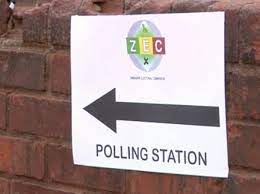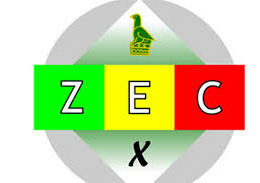What are Private Voluntary Organisations (PVOs)?
PVOs are groups of persons or institutions that are private, non-profit driven and independent. PVOs play a very important role in supporting government efforts in various areas including development and governance. They assist in areas such as charity work, legal aid, and emergency aid in times of natural disasters. For example, during Cyclone Idai, they played a critical role in providing humanitarian support and help to affected communities and places where government support was not enough. PVOs are regulated by the Private Voluntary Organisations Act [Chapter 17:05], however, some organisations such as trusts and common law associations are exempt under the Act.
What is the PVO Amendment Bill?
This Bill was gazetted on 5 November 2021. It seeks to amend the PVO Act for reasons including:
To comply with the recommendations of the Financial Action Task Force (FATF).
To facilitate the easier registration and operation of PVOs.
To prevent PVOs from engaging in political activities.
How does the FATF relate to the intended amendments?
The FATF is a body that checks to see if countries around the world are taking measures to fight money laundering and terrorist financing (ML/TF). It has developed 40 standards and these include recommendation 8 which focuses on non-profit organisations (including PVOs) and requires the government to apply ML/TF measures:
Only to non-profit organisations / PVOs that have been identified to be at risk (not the whole non-profit / PVO sector);
To consult with non-profit organisations / PVOs in the process; and
To apply equal, fair, balanced and focused measures.
Are the amendments fulfilling FATF recommendation 8?
No. The suggested amendments will restrict the work of all PVOs, not just those at risk of ML/TF. They do not advance FATF measures. They violate important human rights and affect communities that depend on the work of PVOs. The Bill seeks to legalise attacks on those who do not agree with the government or those who may be seen as opponents of the government. It limits the ability of citizens to access health, legal, humanitarian and other support that is offered by PVOs.
Who is affected by this Bill?
This Bill affects PVOs, trusts, associations, and all organisations providing charitable services, and everyone who benefits from, and supports, their work.
What are some of the unfair measures being introduced in the Bill?
Trusts and common law universitas associations will be ordered to register under the PVO Act. Designated organisations will become unlawful entities unless they register under the Act. Registration under the PVO Act is a very difficult registration process.
Organisations will not be allowed to receive funds and contributions from well-wishers, including those who are outside the country, to support their operations and be able to pay their workers, unless they register and disclose such funding. The Bill makes it a punishable crime for designated organisations to receive such funds and contributions without registration.
It bans PVOs from working on issues involving politics. PVOs are not allowed to support or oppose any political parties or candidate in any elections. The Constitution of Zimbabwe, the highest law of the land, gives everyone (including PVOs) important rights to participate in democratic processes and to have a say in local and national issues, including politics. The Bill is not clear on the exact meaning of “support” (or “oppose”), which means that PVOs who assist victims of political violence, conduct voter education, provide legal support to opposition candidates who are victims of rights violations, or support a political party’s positions that advance good governance and human rights, may be punished and jailed for exercising their rights.
The Bill allows for suspension and removal of executive committees of PVOs. The Minister of Public Service and Social Welfare is given very wide powers to remove those in charge of or running these organisations and replace them with those he may choose. This is unlawful because it affects the ability of PVOs to decide their own leaders. The Minister may appoint people who have no interest in advancing the work of PVOs. This violates the right to freedom of assembly protected by the Constitution of Zimbabwe.
The Minister is given too much power to label any PVO as “high risk” or “vulnerable to” misuse for terrorism funding and impose measures against them. The Bill fails to show the way or manner in which the Minister may impose such dangerous measures. There is no consultation with PVOs. This violates the law and FATF standards, as it gives unchecked powers to the Minister to do as he pleases and subject those whom he may not like to very harsh measures.
The Bill forces PVOs to reveal to the Minister any funding that comes from outside of Zimbabwe. This is a violation of the right to privacy protected in the Constitution.
The Bill makes it a duty for organisations to apply to the Registrar for approval for “material changes” in the organisation, including changes to their Constitution, institutional changes, or changes in management/ board. The Registrar can refuse such changes and deregister organisations, directing them to re-register.
The Registrar, who is a civil servant and part of the Public Service, is given very wide powers to interfere with activities of PVOs. The Registrar’s office reports and is controlled by the President. This can potentially affect independence of PVOs as they will not be able to speak freely on issues to avoid getting on the wrong side of the Registrar.
What happens if this Bill becomes law?
PVOs will not be able to freely carry out their work.
Human rights violations such as police brutality and political violence would increase without victims getting justice.
Humanitarian work would cease, or be severely restricted.
PVOs would not be able to continue with their work due to lack of funding and support from local and international partners.
Communities in distress will not get aid and services they currently receive through the work of PVOs.
Know Your Rights
Participate and make your voice be heard.
To preserve the work that PVOs do, you can:
Make written submissions to the clerk of Parliament making your concerns known. Email clerk@parlzim.gov.zw
Source: Zimbabwe Lawyers for Human Rights, Zimbabwe Human Rights NGO Forum, Legal Resources Foundation and Kubatana








